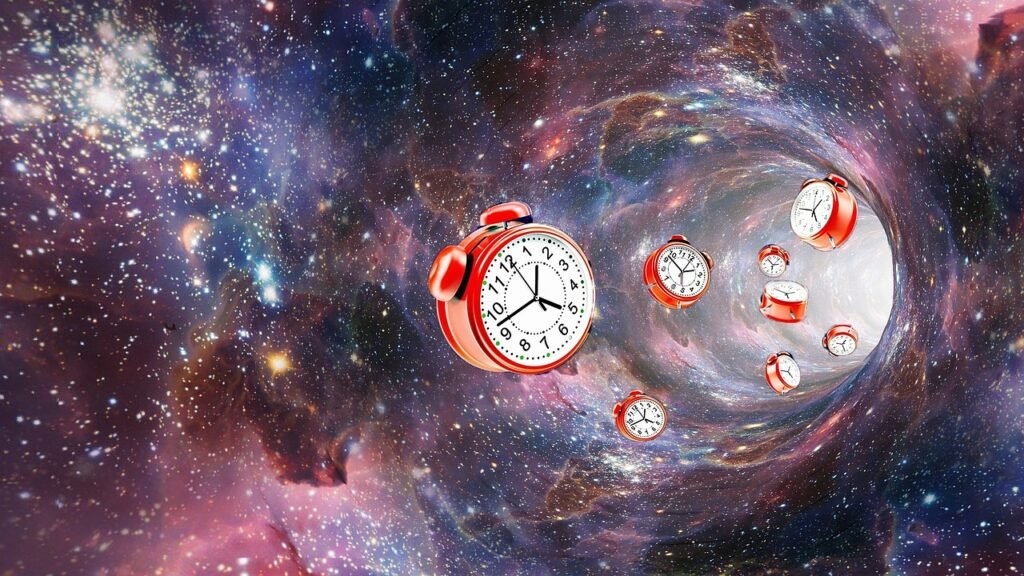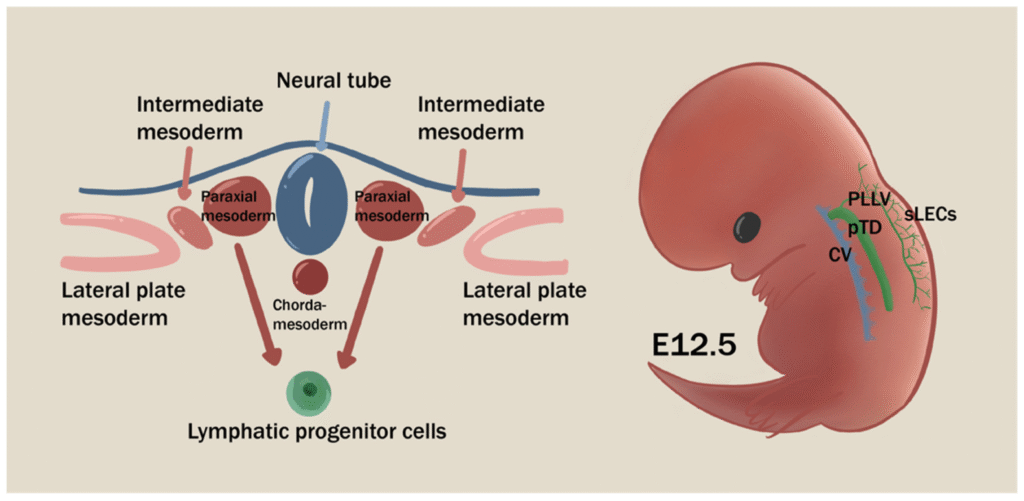The steady tick of your wall clock, the relentless march from morning to night, the aging process that marks our lives – all of these seem to prove that time is as real and fundamental as the ground beneath your feet. Yet some of the most brilliant minds in physics are questioning this most basic assumption about reality. They suggest something almost unthinkable: that the time you experience might be nothing more than an elaborate illusion.
Consider this startling possibility. Everything you think you know about the flow of time – the way moments seem to cascade from future to present to past – might emerge from something far stranger and more fundamental. This isn’t just philosophical speculation anymore. It’s becoming serious science with profound implications for how you understand your place in the universe.
The Great Divide Between Einstein and Quantum Mechanics

You live in a universe where two of humanity’s most successful theories cannot agree on the nature of time itself. Einstein showed that time isn’t universal – it bends and stretches depending on gravity and motion. His theory of relativity revealed that time can slow down if you’re moving close to the speed of light, or if you’re in a strong gravitational field. Time became flexible, woven into the very fabric of spacetime.
Yet quantum mechanics tells a completely different story. Unlike relativity, quantum theory doesn’t see time as something woven into reality. Instead, it treats time as an external parameter, like a stopwatch running outside of the quantum world. In quantum mechanics, time flows uniformly and absolutely, much like Newton originally envisioned centuries ago.
This disagreement isn’t just an academic curiosity – it represents one of the deepest puzzles in modern physics. Time is a thorny problem for physicists; its inconsistent behavior between our best theories of the universe contributes to a deadlock preventing researchers from finding a “theory of everything.” This leaves our two best theories of reality at a fundamental impasse. Without its resolution, a coherent theory of everything remains out of reach.
When Time Disappears from the Equations

Something remarkable happens when physicists try to describe the universe at its most fundamental level. The Wheeler-DeWitt equation, which attempts to combine quantum mechanics with general relativity, has a property known as timelessness. This equation, considered crucial for understanding quantum gravity, simply has no time variable in it whatsoever.
Think about what this means for a moment. The equation that might describe the deepest reality of our universe – the quantum state of spacetime itself – treats time as nonexistent. The Wheeler-DeWitt equation in quantum gravity is timeless in character. It’s as if you tried to describe the motion of a car without any reference to duration or speed.
This isn’t a mistake or oversight by physicists. In the case of canonical quantization of general relativity, time and therefore spacetime is absent in the Wheeler-DeWitt equations. Time as well as probability are both left in this formalism as phenomenological concepts. When you peer beneath the surface of reality using our most sophisticated mathematical tools, time simply vanishes.
The Quantum Entanglement Revolution

Recent breakthroughs suggest that what you experience as time might actually emerge from quantum entanglement – the spooky connection between particles that Einstein famously disliked. Time may not be a fundamental element of the universe but rather an illusion emerging from quantum entanglement. The correlation between the clock and the system creates the emergence of time, a fundamental ingredient in our lives.
This radical idea builds on work from the 1980s called the Page and Wootters mechanism. The theory suggests that time emerges for one object through its quantum entanglement with another acting as a clock. For an unentangled system, on the other hand, time does not exist, and the system perceives the universe as frozen and unchanging.
The implications are mind-bending. The suggestion seems to point to time being purely a consequence of entanglement. It states that the only reason that an object appears to change over time is because it is entangled with a clock. Anyone observing the universe externally would see it as completely static and unchanging. Your sense of temporal flow might exist only because you’re quantum mechanically entangled with the rest of the universe.
The Block Universe Where Nothing Moves

Einstein himself believed in a view of reality that many find disturbing. Einstein’s equations portray everything in the block universe as decided from the beginning; the initial conditions of the cosmos determine what comes later. “For us believing physicists,” Einstein wrote in 1955, “the distinction between past, present and future is only a stubbornly persistent illusion.”
In Einstein’s theory of relativity, time is woven together with the three dimensions of space, forming a bendy, four-dimensional space-time continuum – a “block universe” encompassing the entire past, present and future. In this view, all moments of time exist equally. Your birth, your current reading of these words, and your eventual death all exist simultaneously in the block universe.
The block universe theory suggests that your experience of moving through time is similar to a movie played on a DVD. As one physicist explains, “life is like a movie, and space-time is like the DVD; there’s nothing about the DVD itself that is changing in any way, even though there’s all this drama unfolding in the movie. We have the illusion, at any given moment, that the past already happened and the future doesn’t yet exist. But all I’m ever aware of is my brain state right now. The only reason I feel like I have a past is that my brain contains memories.”
Space and Time as Emergent Illusions

The revolution in thinking about time extends beyond individual moments to the very fabric of spacetime itself. Leading string theorist Nathan Seiberg states, “I’m almost certain that space and time are illusions. These are primitive notions that will be replaced by something more sophisticated.” Moreover, in most scenarios proposing emergent space-times, entanglement plays the fundamental role.
This perspective suggests a universe far stranger than anything our ancestors could have imagined. Properly understood, entanglement implies that the universe is “monistic” – that on the most fundamental level, everything in the universe is part of a single, unified whole. It is a defining property of quantum mechanics that its underlying reality is described in terms of waves, and a monistic universe would require a universal function.
Work in quantum gravity attempts to resolve contradictions, and increasingly says something astonishing: the fundamental ingredients of reality are not spatiotemporal. Instead, spacetime emerges from something more basic, something defined in terms of mathematical structure that dispenses with temporal ordering or spatial metric. Just as transparency of water is not found in a single molecule, at the finest level of resolution, spacetime drops out altogether. Reality might be built from something that has nothing to do with space or time as you know them.
The Mathematical Rebellion Against Infinite Precision

Swiss physicist Nicolas Gisin has proposed a radical solution to the puzzle of time that challenges mathematics itself. Gisin argues that the problem all along has been mathematical. He argues that time in general and the time we call the present are easily expressed in intuitionist mathematics, which rejects the existence of numbers with infinitely many digits.
This approach suggests something profound about the nature of prediction and determinism. The laws of physics imply that the passage of time is an illusion. To avoid this conclusion, we might have to rethink the reality of infinitely precise numbers. If numbers cannot have infinite strings of digits, then the future can never be perfectly preordained.
Gisin’s insight reveals a deep connection between the mathematics we use to describe reality and the nature of time itself. If the universe operates with finite precision rather than infinite mathematical exactness, then genuine novelty and the flow of time become possible again. The apparent conflict between timeless physics and experienced time might dissolve when we abandon the assumption that nature computes with infinite precision.
The Problem of Consciousness in a Timeless World

If time is indeed an illusion, this creates a profound puzzle about consciousness and experience. For if there is no time at the fundamental level, how could there be experience? Conscious experience has a felt quality that involves flow; thoughts seem to be present in the “now,” and they change from moment to moment.
Your consciousness seems intimately tied to the flow of time. How does experience, which is so intimately tied to our perception of time and space, arise from timeless, non-spatial ingredients? Every moment of awareness, every thought that follows another, every memory that connects past to present – all of these seem to require time to unfold.
Yet if the fundamental level of reality is indeed timeless, consciousness must somehow emerge from timeless components. The very same entities that fundamental physics investigates may very well be the ingredients that give rise to experience. But there seems to be an explanatory gap between the non-spatiotemporal and the experiential. Consciousness may arise from an elaborate dance among non-spatiotemporal ingredients, but if it does, the choreography eludes us. Understanding how subjective experience emerges from timeless quantum processes remains one of the deepest mysteries in science.
Clock-Dependent Reality and Quantum Timekeeping

Recent research has revealed that what we call “time” might depend entirely on having the right kind of quantum clock. A team led by Alessandro Coppo developed a theory proposing that time could emerge from interactions among quantum particles. In other words, time could be a product of entangled quantum systems rather than an independent entity.
The researchers studied systems with quantum clocks – not mechanical timepieces, but quantum oscillators that could serve as temporal references. Their findings revealed that this system could be described by Schrödinger’s equation, but instead of using time as a variable in the equation, the flow of time was determined by the state of tiny quantum magnets. This suggests that time could depend on quantum relationships between particles, indicating that even in large-scale systems, time might still emerge from quantum entanglement.
Within quantum physics, a clock isn’t much like the one you wear on your wrist – it’s anything that has a predictable and uniform behavior that can be used as a measurement. Your experience of temporal flow might depend entirely on being entangled with natural quantum clocks throughout the universe, from atomic oscillations to biological rhythms.
The Experimental Challenge

Despite the theoretical elegance of emergent time theories, proving them remains extraordinarily difficult. Despite finding the Page and Wootters mechanism a fascinating idea for the quantum origins of time, physicists say it has yet to produce anything testable. “However, no one knows if anything new or fruitful will come out of this picture – such as modifications to quantum physics and general relativity, and corresponding experimental tests.”
Some scientists remain cautious. Although this approach is mathematically appealing, it hasn’t yet led to results that could be tested in concrete experiments. The challenge is to translate this theory into an experimental framework that would allow us to explore these concepts more deeply and to validate or refute these ideas. The mathematics might be beautiful, but science demands experimental verification.
This experimental challenge reflects a deeper problem in fundamental physics. When you’re trying to test whether time itself is fundamental or emergent, you face the paradox of using time-dependent measuring instruments to probe the nature of time. It’s like trying to measure the speed of your car using only the car’s speedometer – the tool and the phenomenon being measured are inextricably linked.
Conclusion: Living in the Illusion

The growing scientific consensus that time might be an emergent illusion rather than a fundamental aspect of reality challenges everything you think you know about existence. From the timeless Wheeler-DeWitt equation to quantum entanglement theories, from the block universe to emergent spacetime, multiple lines of evidence suggest that your most basic experience of temporal flow might be a convincing mirage created by the universe’s quantum mechanical foundations.
This doesn’t make your experience of time any less real or meaningful to you. Just as the solidity of a table emerges from quantum particles that are mostly empty space, the flow of time you experience emerges from deeper, timeless processes. Your memories, your anticipation of the future, your sense of duration – all remain as vivid and important as ever, even if they arise from an underlying reality where past, present, and future are human constructs rather than fundamental features of the cosmos.
Perhaps the most remarkable aspect of this revolution in thinking is that it might reconcile our deepest theories of physics while revealing consciousness and subjective experience as even more mysterious and wonderful than we previously imagined. If time truly is an emergent property of quantum entanglement, then your awareness of temporal flow represents one of the universe’s most sophisticated achievements – a phenomenon that transforms timeless mathematical relationships into the rich, flowing experience of existence itself.
What do you think about the possibility that every moment you experience might be an illusion created by quantum processes operating outside of time altogether? The answer might change how you perceive not just physics, but the very nature of your conscious experience of being alive.




